
THE VOICE OF INTERNATIONAL LITHUANIA
|
VilNews has its own Google archive! Type a word in the above search box to find any article.
You can also follow us on Facebook. We have two different pages. Click to open and join.
|
Archive for July, 2011
- Posted by - (0) Comment
A very special ‘Culture Tall Ships Regatta’ will take place in Klaipeda 18 – 21 August
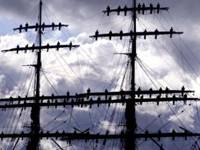
PHOTO: Sailors take up positions on the masts to lower the sails for the beginning of a regatta of tall ships.
This August, Klaipeda will be the starting point for a spectacular sailing event - The Culture Tall Ships Regatta 2011.
After the success of the Tall Ships Races 2009, this year Klaipeda is once again preparing for a fleet of sailboats.
The International Sail Training Organization (Sail Training International) is organizing this non-traditional regatta to mark the Finnish city Turku as ‘European Capital of Culture 2011’.
The Culture 2011 Tall Ships Regatta will be held after the Tall Ships Races 2011 and extend the Tall Ships festival season until September.
Klaipeda and Gdynia (Poland) have agreed to combine forces with Turku (Finland) and held the races in two phases: Tall Ships Regatta will start in Klaipeda, from where the fleet will race to Turku and then to Gdynia.
The Culture Tall Ships Regatta 2011 takes place 18 - 21 August.
- Bookmark :
- Digg
- del.icio.us
- Stumbleupon
- Redit it
- Posted by - (1) Comment
KLAIPĖDA SCIENCE AND TECHNOLOGY PARK:
Progressive thinking and innovative ideas!
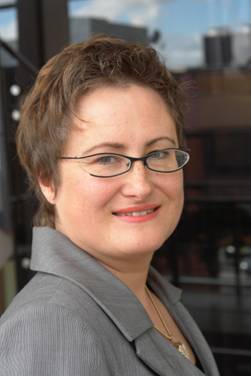
Klaipeda Science and Technology Park
Director Roma Stubrienė
“By opening the door of the Klaipeda Science and Technology Park (KSTP) we intended to gather under one roof enthusiasts of successful development from Klaipeda city and all western Lithuania: progressive thinking students full of innovative ideas, post-graduates, entrepreneurs and their enterprises in order to enhance the collaboration between science, industry and other branches of economy as well as development of high technology sectors. We hope to interest the visitors of our internet site in our activity and encourage them to collaborate in development of an innovative environment and innovation based economy in the Klaipeda Region.”
- Roma Stubrienė
The Klaipeda Science and technology Park (KSTP) is a mediator between science and business structures. Its task is to enhance communication between science and businesses, increase the level of entrepreneurship and promote development of knowledge based economy in the Klaipeda Region.
The Klaipeda County is one of the leaders of Lithuanian economy; it is among the three most powerful counties according to the GDP per capita, material and direct foreign investments as well as the average salary. More than 80% of the gross domestic product of the region is produced in Klaipeda City. Considering the potential and perspective of the region, it is necessary to ensure successful competitiveness by enhancing innovation culture, organizing transfer of knowledge and technologies and synergetic business communication.
Gathering under the roof of KSTP enthusiasts of successful development from Klaipeda City and all western Lithuania, progressive thinking students full of innovative ideas, post-graduates, entrepreneurs and their enterprises will help to enhance collaboration between science, industry and other branches of economy as well as development of high technology sectors. The KSTP plays an important role in creation and promotion of the city and region image and distinction and it also sets innovation culture traditions in the region. Therefore, the activity of the Park ensures social connection of science and business institutions: creates the necessary environment for knowledge and technology exchange, sets favorable conditions to provide high value added services, and promotes the scientific and industrial potential of the region.
Read more at www.kmtp.lt
- Bookmark :
- Digg
- del.icio.us
- Stumbleupon
- Redit it
To my dear homeland Norway
- Posted by - (0) Comment
![]()
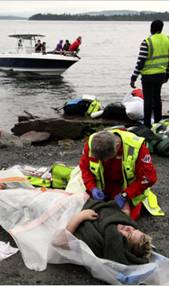
PICTURE: From the island Utøya near Oslo, where around 90 young people last night were massacred by a 32 year old man characterised as a right-wing Christian fundamentalist. The man is also expected to be behind the powerful bomb blast in downtown Oslo earlier same day.
Dear VilNews readers,
Most of you probably know that I am Norwegian, although I for the last 20 years have lived in Lithuania. Today I want to share with you all that the tragic events that took place yesterday in my beloved Norway makes a deep impression on me. I simply feel sad and empty right now.
The attack is considered the worst violence my country has seen since World War II, with a death toll of around 100.
The blast in the city quarter, where our government is located, shattered glass and sent a shockwave through the heart of downtown Oslo, killing at least seven people.
An hour later, the gunman opened fire at the Utøya summer camp, killing around 90 totally innocent young people.
My thoughts go to all those who have lost their loved ones in this deeply tragic way. Norway will move on, but this incident will forever remain a deep crater in our history.
Aage Myhre,
Editor-in-Chief
- Bookmark :
- Digg
- del.icio.us
- Stumbleupon
- Redit it
- Posted by - (7) Comment
|
MEMEL CITY – A NEW 'CITY' AT KLAIPEDA'S SEA FRONT "A completely new face of Lithuania"- Mindaugas Žilinskas, Chairman of the Board, Memelio miestas |
|
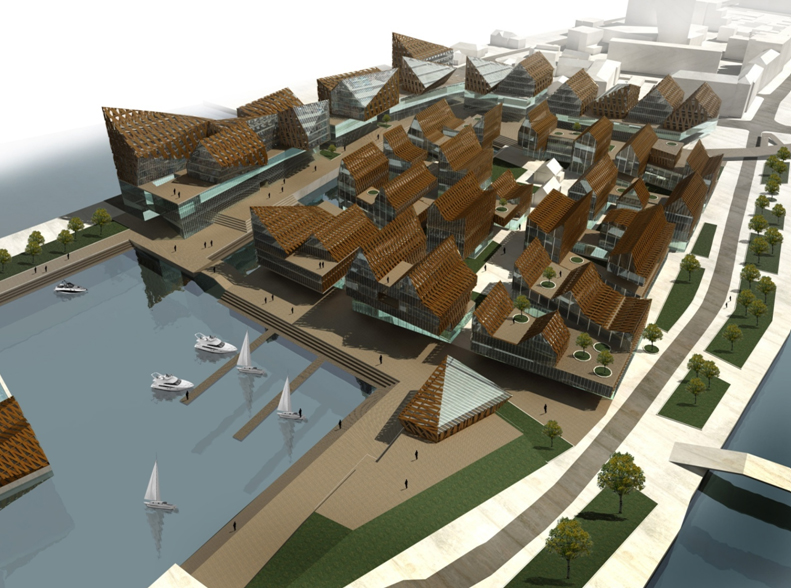
Memel City will be an immensely attractive seafront development in the Klaipeda harbour, at the Dane River mouth.
Memel City is a new ‘city’ planned built in the port of Klaipeda at the very sea front. A fantastic, amazing project that well might change the face of Lithuania!
The area where the new 'city' will be built is still a part of the port area. Here are still cranes and old production halls, and there are still ships at the dock. But in a few years this will be the most exciting town imaginable in this country. It is even likely to be Lithuania's only seafront project ever.
Memel City will be located at the mouth of the Dane river. On the other bank is planned another project with some similarities to Memel City, though in a smaller scale. The projects will be tied together by a new bridge over the river, and they will together constitute a truly unique development for Klaipeda and Lithuania.
Memel City will include several new quarters with apartments, business, offices, shops, restaurants, a hotel, night clubs, SPA, casino and much more. The quays and the closest sea area will be available for small boats and yachts.
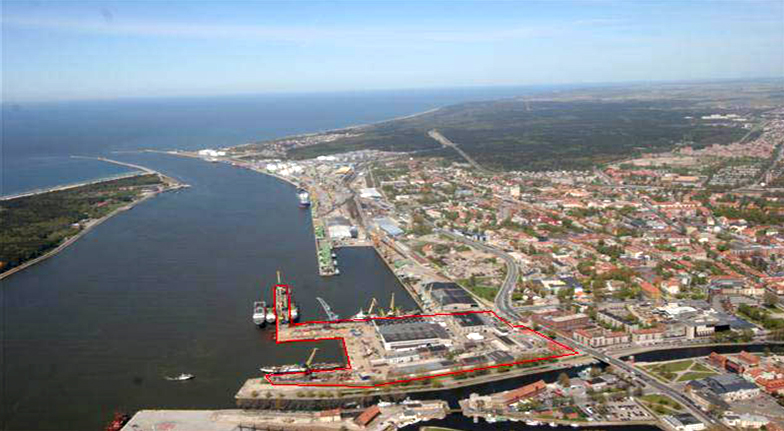
The whole territory covers 6,87 hectare, whereof 5,3 will be occupied by buildings and the rest remain as open green space, squares, outdoor restaurants and more – for joyful use and relaxation by visitors and inhabitants of the new ‘city’.
The ‘city’ will also include a seaside hotel with wonderful view to the Curonian Spit, the Lagoon, the Baltic Sea and Klaipeda city. The buildings will be constructed with 4 - 7 floors.
On the opposite side of the River Dane there is a newly renovated riverfront yacht harbour, old architectural buildings, the historic Klaipeda Castle, the cruise ship harbour - all attractive elements contributing with additional value and charm to the project.
Planned floor space:
Residential – 32.326 sq.m
Offices – 25.355 sq.m
Commercial – 19.308 sq.m
Hotel – 18.412 sq.m
Conference halls – 2.100 sq.m
SPA centers – 4.213 sq.m
Casino – 1.030 sq.m
Restaurants and cafes – 1.192 sq.m
Other – 2.389 sq.m
Reconstructed buildings – 453 sq.m
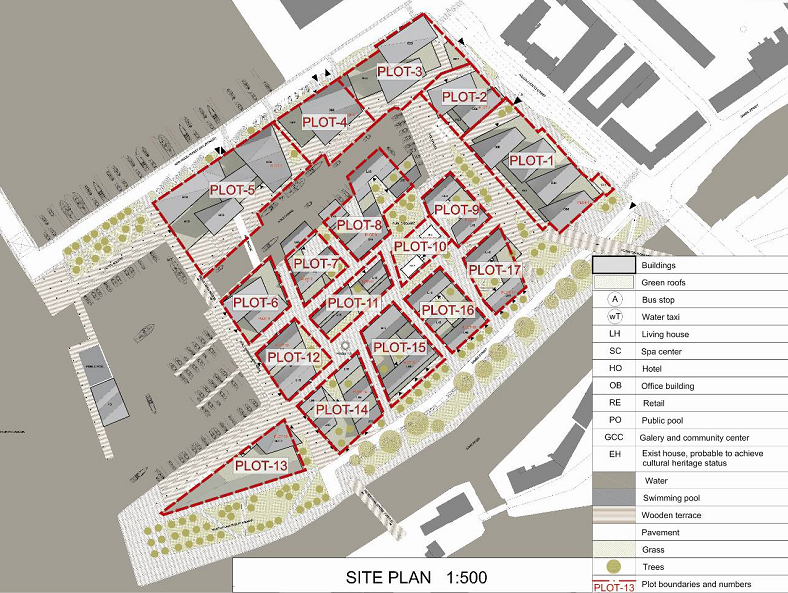
- Bookmark :
- Digg
- del.icio.us
- Stumbleupon
- Redit it

Former KG officer, Mikhail Golovatov (62) commanded a special unit killing Lithuanian demonstrators in Vilnius on 13 January 1991. Here from the burial ceremony at the Vilnius Cathedral.
Prague, July 21 (CTK) - The Czech Republic has joined Lithuania's protest against Austria's release of a former Soviet secret service (KGB) officer in spite of a European warrant for his arrest issued in Lithuania, it ensues from yesterday's statement by the Czech Foreign Ministry, available to CTK.
Lithuania wants to prosecute the former KGB agent, Mikhail Golovatov, for alleged war crimes from 1991.
The other two Baltic countries, Estonia and Latvia, have backed Lithuania's stand.
Czech diplomacy supported Lithuania after a phone conversation between the Czech and Lithuanian foreign ministers, Karel Schwarzenberg and Audronius Azubalis, Foreign Ministry spokesman Vit Kolar said.
"Persons responsible for people's violent death under dictatorial regimes in Central and Eastern Europe should be brought to court. To push through the rule of law, every European country has a moral duty to cooperate in these cases," the ministry wrote.
According to some diplomats, the Czech stance can be interpreted as an act of solidarity with the Baltic states against Moscow.
Golovatov, 62, commanded a special unit whose members were shooting at Lithuanian demonstrators in Vilnius on January 13, 1991. A total of 17 people were shot dead and some 700 wounded. The authorities of the collapsing Soviet Union thereby attempted to thwart Lithuanians' effort to reach independence.
A similar intervention of Soviet armed forces in the neighbouring Latvia resulted in seven casualties.
Lithuania wants to charge the former KGB officer with crimes against humanity and war crimes.
Last Thursday, Golovatov was detained at the international airport in Vienna. He was released a day later allegedly because the arrest warrant was too vaguely formulated.
Security expert Andrei Soldatov, cited by Die Presse Austrian paper, has said Golovatov retired only formally and he keeps working for the FSB Russian secret service, a successor to KGB.
Source:
http://praguemonitor.com
- Bookmark :
- Digg
- del.icio.us
- Stumbleupon
- Redit it
4 trucks full of books every week!
- Posted by - (1) Comment
Four trucks full of books, on around 1.000 pallets, leave the PRINT IN printing plant every week to Norway, Sweden, Finland, Denmark, Poland and local deliveries to Lithuania.
The PRINT IT printing plant in Gargzdai, a few kilometres south of Klaipeda city, is a Norwegian owned Lithuanian softcover book printer. They provide their clients with solutions for all sorts of printing needs at very compatible prices compared to Scandinavia and Western Europe, still without compromising on quality!
PRINT IT was established in Lithuania 18 May 2005, by Norwegian investors and experienced professionals from the Norwegian printing industry. The decision to operate out of Klaipeda, Lithuania, was based on location and low production costs. The location also provides excellent access to the key markets in Europe.
Since the start-up in 2005, PRINT IT has with a yearly production of 25 million books become a force to be reckoned within the European printing industry. The company has 70 employees and an EUR 12 million annual turnover. The printing machines, binders and the rest of the machine park, are all efficient and modern.
With exports accounting for more than 96% of the total production, PRINT IT is the largest pocket book producer in the Baltics.
PRINT IT is now expanding and is in the process of installing an additional web fed book press in order to produce large format soft cover. The new machinery will be fully operational by August. The new press will provide the plant with capacity to produce soft cover with height up to 21.5 cm. Combined with their two existing web fed book presses, the plant will now be able to fully utilize its bookbinding capacity.
Four trucks fully loaded with wisdom leaves Klaipeda every week. Soon there will be more...
- Bookmark :
- Digg
- del.icio.us
- Stumbleupon
- Redit it
- Posted by - (4) Comment
Klaipedos Nafta has one of the most up-to-date oil terminals in Europe
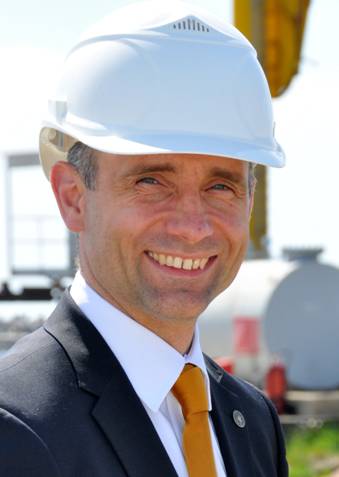
Rokas Masiulis, General Manager of Klaipedos Nafta
Rokas Masiulis interviewed by Aage Myhre
aage.myhre@VilNews.com
Rokas Masiulis has huge challenges, both behind and in front of him. As head of the giant oil terminal belonging to Klaipedos Nafta, he has had good success, and has this year also delivered remarkable economic performance for the company that in essence is owned by the Lithuanian State. Now it's planning and development of the increasingly well-publicized LNG terminal that lies in front of him. The president and the government have decided that the LNG venture will be a project of national concern, and as I’m in the process of writing this interview, the President herself is on a visit to Mr. Masiulis to ensure that the planning of the terminal proceeds 'by leaps and bounds'.
In the middle of the storm's eye Lithuania's oil-director still found time to answer my questions. His capacity is compelling...
“From your Klaipedos Nafta web page I have read that your company was founded in 1994, that it was entrusted the functions of reconstruction executive of the oil terminal which had been in operation since 1959 in the Klaipeda Seaport, and that your company became operator of the new terminal when reconstruction of the old terminal started in 1995, a reconstruction that was completed in 2002. The web page also tells that today Klaipedos Nafta is one of the most up-to-date oil terminals in Europe. Anything you would like to add about the company’s history? And please explain to our VilNews readers what the functions of an oil terminal like yours are all about?”
“SC Klaipėdos Nafta is a strategic enterprise of the Republic of Lithuania capable of unloading different oil products from rail tank cars into tankers and, when necessary, from tankers into storage tanks. SC Klaipėdos Nafta transports close to one third of all the cargoes shipped via Klaipėda Port. Our company is well known in handling so called “dark petroleum products” (fuel oil, vacuum gasoil) loading of which require special heating equipment. Our company also serves as a backup route for petroleum products import to the country in case supplies are cut from the east.”
“The Lithuanian State is the major shareholder of Klaipedos Nafta. Who are the other shareholders, and why are they involved?”
“The other shareholders comprise of joint stock companies and private persons, from which the largest is AB Achema, owning more than 9% of AB Klaipedos Nafta shares. The minority shareholders play a role as investors through shares free flow in Nasdaq OMX Vilnius.”
“You claim on your web page that experts from British Petroleum have reported positively about;
a. labour safety,
b. environmental protection
c. fire prevention means
of your Klaipedos Nafta Terminal, every year since 2001. After last year’s catastrophe in the Mexican Gulf, BP’s judgements are probably not that worthy anymore, but what can you in general say about the environmental and fire risks having a an oil terminal of this size located so close to a rather large city centre as Klaipeda is?”
“The Terminal focuses much of its attention on environment protection. Automatic fire detection and extinguishing system, computerized control system of the transshipment process, air, soil and water pollution prevention technologies fully satisfying the European standards have been introduced. Oily waters from the tankers being serviced at the Terminal are collected and treated in the modern mechanical and biological waste water treatment facilities.”
“SC Klaipėdos Nafta also pays great attention to the measures preventing air pollution with hydrocarbons. Vapour, emitted during technological process, recovery and combustion unit has been installed and is in operation where up to 98 per cent of volatile organic compounds, collected from the tanks of the vessels handled at Company’s jetties or from rail tank-cars during their loading, are being burnt. An advanced close discharge system is in operation. During loading – discharging of oil products tank-car hatches are covered with special caps with valves preventing hydrocarbon emissions into the air. Floating roofs, mounted in the storage tanks, reduce product evaporation and thus environment pollution.”
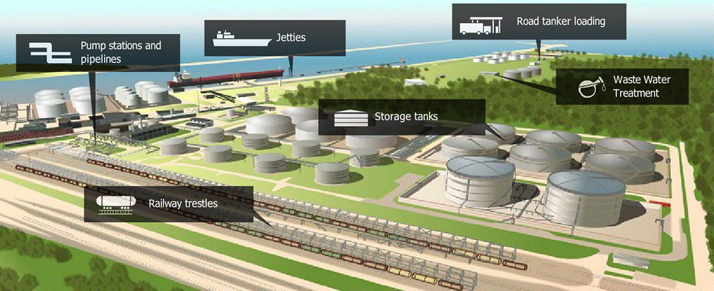
Klaipedos Nafta claims to operate one of the most up-to-date oil terminals in Europe, with the core activity to transship exported oil products from rail tank-cars into tankers, provide Lithuania with imported crude oil and oil products which are shipped to Klaipеda port by tankers.
“Last week you informed the Vilnius Stock Exchange that your profit rose 57 percent in the first half of this year due increased sales and dropped intermediaries. Net income rose to LTL 27.7 million ($ 11.4 million) from LTL 17.6 million for the first half of 2010. These are impressive figures?”
“Yes we can say a great job done through the first half of 2011. Increase of revenues during the first half of 2011 was influenced by significant factors such as successful functioning of the business model - operation without intermediaries, and after termination of a non transparent cooperation with UAB „Naftos grupe“ the Company gained about LTL 5 million (EUR 1,4 million). Additional earnings were achieved by applying increased transhipment tariffs; plus an implemented structural reorganization in the commercial sphere which added LTL 4 million (EUR 1,2 million) earnings from additional services rendered to the clients as well as successful sales in June of oil products recovered from bilge waters that brought LTL 5,7 million (EUR 1,7 million).”
“Your Lithuanian Government and President say they are ready to build a floating LNG (liquefied natural gas) terminal close to the Klaipeda port by 2014 to cut dependence on Russian gas and obtain access to the gas spot market. But I understand that the Latvians and the other Baltic neighbours are not all that convinced and will potentially decline to cooperate on this?”
“This question should be addressed to Lithuania Government and President but the main purpose to build LNG terminal in Lithuania’s security of supply which means we’re thinking of local terminal to cover Lithuania needs.”
“Your Klaipedos Nafta is in charge of the LNG terminal project. Last week you signed an agreement with Fluor Corporation , the largest publicly traded U.S. engineering company, as lead advisor on the planned terminal. You said that they will take over the project's management from July, expected to prepare the technical development plan and assist in selecting technologies, as well as working out a business plan for the terminal. The contract (so far undisclosed) with Fluor covers a period up to 2014, when you expect the terminal to come online. Please tell me more about the size and extent of this contract with Fluor and what they are supposed to accomplish?”
“Our selected lead adviser Fluor will cover financial, environmental, risk&safety, engineering and project management advice, as well as election of main parameters and support in negotiations to acquire FSRU, EPC contract. The LNG supply will be at their responsibility as well. As you see from activities listed above, Fluor will lead us through the whole project implementation period, i.e. 4 years. The contract price with them is EUR 9,229 million (excluding VAT).”
“You’ve also said in an email that Klaipedos Nafta plans the terminal to have a capacity of 2-3 billion cubic meters of gas per year, and that it will cost some EUR 200-300 million to build. Can you elucidate more on these figures? Maybe also exemplify a bit on how many gas tankers (ships) that will represent per year, etc.? And what about the environmental risks, pollution etc. having the LNG terminal located so close to Klaipeda city?”
“The main parameters are so far preliminary, so this is not the time to speculate. In 3-4 months, with Fluor advice, we will determine the main parameters and then we will have a vision of the business plan. Environmental impact assessment will determine any existing environmental risk, pollution and other risks. It is planned to have EIA report ready by the end of 2012. At the first glance it shouldn’t be a negative risk. There are several examples in the world where terminals are located very close to a city, i.e. Barcelona (Enagas).”
“The Government of Lithuania last week gave the projected LNG terminal the status of national importance, and the Cabinet approved the implementation plan, that will provide for speedier procedures of all the institutions involved in the project. This will force other departments to be more active in solving the issues related to land plots, EIA assessment and the involvement of the sea port in the project. The decision came after President Dalia Grybauskaite earlier had criticised the slow pace of the project. Does this represent lack of trust in Klaipedos Nafta’s handling of the project? What else can you say about your cooperation with the Government and the President?”
“We have to do pre-work to enter the more visible movement of the project implementation. I mean, there are lots of procedures and research to be done before engineering and EPC contracting can start, for example. SEIA, development plan, territory planning, marine research, EIA etc. have already been started. We are in close cooperation with the President, Government and other related institutions as we have at hand an ambitious national importance project.”
“How do you see the future for Lithuania’s energy supplies on the backdrop of the above? Do we really need a new nuclear power station, or will the LNG terminal and other sources be sufficient enough for this country by 2020?”
“It’s not our competence to comment on national energy strategy.”
Principle for the planned LNG terminal in Klaipeda

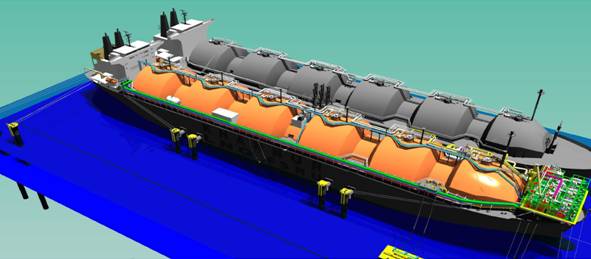
An FSRU (floating storage and re-gasification unit) will be moored to a pier (jetty) and every
arriving LNG carrier will be moored to the FSRU, side by side.
- Bookmark :
- Digg
- del.icio.us
- Stumbleupon
- Redit it
- Posted by - (2) Comment
WITH BOTH OIL AND LNG IN KLAIPĖDA:
Environmental risks?

The Kiaules Nugara (Pig’s back) island in the southern part of the Klaipeda port, at the border between the port and the Curonian Lagoon (to the left in the above illustration) is the most likely place to build Lithuania’s planned LNG terminal. This means that it will regularly sail large LNG tankers through the narrow strait between Klaipeda city and Neringa (which is now designated as one of the country’s national parks). How risky can it be to get a gas terminal and such a heavy sea traffic close to the big city that Klaipeda after all is? What about the explosion and fire risk? What about emissions and other forms of pollution? Is the water, beaches and fisheries in the Curonian Lagoon at risk? May Neringa and Klaipeda city be at risk?
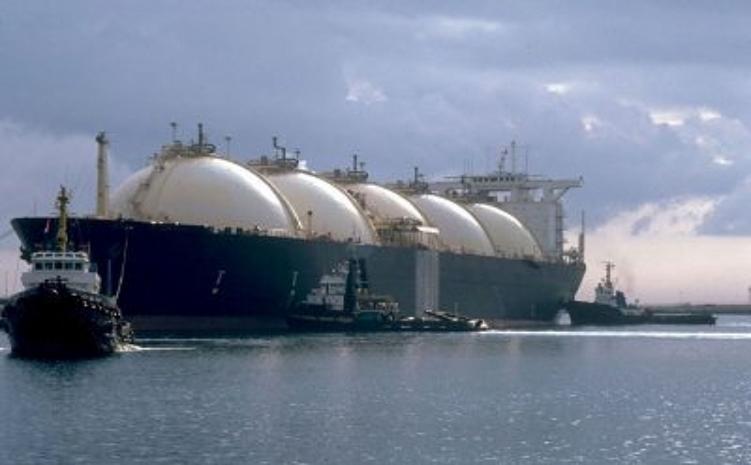
There are currently 235 liquefied natural gas (LNG) tankers in operation worldwide. New LNG tankers have an average capacity of three billion cubic feet, costing approximately EUR 180 million each. LNG tankers differ from traditional oil tankers in that their cargo, liquefied natural gas, must be cooled to extremely low temperatures (-160°C) and has slightly different characteristics than oil (including a higher propensity to burn). LNG tankers might be dangerous for environments and communities claims a new movie and web page: http://timrileylaw.com/LNG_TANKERS.htm
Principle for the planned LNG terminal in Klaipeda


An FSRU (floating storage and re-gasification unit) will be moored to a pier (jetty) and every
arriving LNG carrier will be moored to the FSRU, side by side.

Klaipeda port area is now very idyllic. Klaipedos Nafta's oil tanks (left in above photo) have certainly somehow changed this picture over the latest years, but that will be trifles in comparison to the situation that will be applicable when the LNG terminal at the inner end of the strait is completed in 2014. Let's just hope that all possible precautions are taken, and that neither LNG, oil, nor the tankers carrying the gas and oil will have negative or risky effects for Klaipeda, the sea or the beautiful, surrounding landscapes.
Aage Myhre, Editor-in-Chief
- Bookmark :
- Digg
- del.icio.us
- Stumbleupon
- Redit it
The port of Klaipeda
- Posted by - (2) Comment

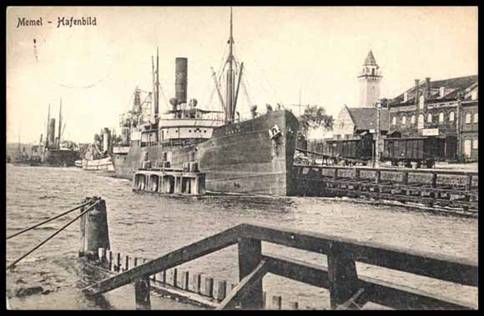
The history of Klaipeda seaport started already the summer of year 1252 when the Curonian bishop and the vice-regent of Livonian Order signed the agreement about Klaipeda. This agreement was approved by the ruler of Lithuania, Mindaugas (one year before he was crowned King of Lithuania). Following this agreement Klaipeda Castle was built. In the small port neighboring the castle, vessels of Lubeck and Bremen merchants used to moor.
In the middle of the 16th century Klaipeda rivals, the inhabitants of Danzig, overloaded the Dane port with stones (!), therefore till 1820 only small vessels could call the port.
In 1743 the first timber trade office was founded in Klaipeda, and the port became the most famous timber trading port in the Baltic Sea.
The chronicle of 1797 mentions that Klaipeda port consists of the Dane river port and a big water basin in the strait of the Curonian Lagoon. Timber was handled in the port, accommodating more than 300 vessels at a time.
The period of 1924-1939 was a period when Klaipeda port was at its flourishing peak – new quays were constructed and various companies started to operate, Lithuanian Shipping Company was founded, and the young state of Lithuania invested into the development of the port not less than 42 million litas.
In 1963 the first renewed Sea Festival took place. Today this festival has become the most important public event in Klaipeda.
In 1986 the new International Ferry Terminal was constructed. The Terminal was constructed for serving Soviet Army, located in Germany, and the biggest-in-the- world rail-ferries started to operate.
On June 3, 1991, following the order of the Minister of Transport and Communications, the state enterprise Klaipeda State Seaport Authority was founded and since 1993 it started managing the state-owned port infrastructure.
Klaipeda State Seaport is the northernmost ice–free port on the Eastern coast of the Baltic Sea. It is the most important and biggest Lithuanian transport hub, connecting sea, land and railway routes from East to West.
Klaipeda is a multipurpose, universal, deep-water port, providing high quality services. 15 big stevedoring companies, ship repair and ship building yards operate within the port as well as all types of marine business and cargo handling services.
The annual port cargo handling capacity is up to 40 million tons.
The shortest distances connect the port with the most important industrial regions of the Eastern hinterland (Russia, Belarus, Ukraine etc.). The main shipping lines to the ports of Western Europe, South-East Asia and the continent of America pass through Klaipeda port.
The port operates 24 hours a day, 7 days a week, all year round.
IMPORTANT
More than 800 economic agents are directly related to the operations of the port of Klaipėda. The port and the enterprises related to its operations provide more than 23,000 jobs and 4.5% of the Lithuanian GDP. Because of the port operations, approximately 185,000 jobs are created. The port of Klaipėda is directly or indirectly related to 18% of Lithuania’s total GDP.
ICE-FREE
An ice-free port that does not freeze even during very cold winters guarantees smooth traffic and uninterrupted stevedoring operations. As the port of Klaipėda is situated at the junction of international transport corridors, it is a bridge between the Commonwealth of Independent States and the countries of Asia, the European Union and other markets.
MODERN
Between 1993 and 2006 the Klaipėda State Seaport Authority and the stevedoring companies operating in the port allotted 2 billion Litas (600 million Euro) for its modernization. 1 billion 215 million Litas (350 million Euro) should be invested in the years 2008 to 2013.
The Klaipėda port is rapidly developing and sets out ambitious plans for further expansion
DEEP-WATER
The depth of the entrance channel is 15 meters. The depth of the port navigation channel is between 13 and 14.5 meters. Therefore, the port can accept large-tonnage vessels: dry-cargo vessels up to 80,000 DWT, and tankers up to 150,000 DWT.
In 2004 the Japan International Cooperation Agency (JICA) conducted a prefeasibility study on Klaipeda State Seaport development.
INTERMODAL
The port of Klaipėda is the leader among the ports of the Baltic Sea in terms of container handling. Its well-coordinated operations of sea and hinterland transport, the Free Economic Zone (FEZ), the EU short-sea shipping network, and the wide-range operation of logistic and industrial enterprises ensure the operations of intermodal transport.
An innovative logistic product in the Baltic States, the container and contrailer train Viking,connects the markets of the Baltic Sea and the Black Sea regions from the port of Klaipėda per Minsk, Kiev to the ports of Odessa and Ilyichevsk.
ACTIVE
The port of Klaipėda is a member of four international organizations.
It is a regular organizer and participant in inter-state negotiations on transport matters, and international transport exhibitions and conferences.
SAFE
Requirements of the International Ship and Port Facility Security (ISPS) Code, Regulation No.725/2004 of the European Parliament and the Council and Directive 2005/65/EC have been implemented in the port terminals, territory and port waters.
INNOVATIVE
The latest information system called KIPIS (‘Creation and introduction of an information system for cargo and commodities shipped via Klaipėda State Seaport’) speeds up cargo traffic via the port of Klaipėda, strengthens the competitive advantage of the port, and facilitates the operations of ship’s agents and forwarders. The KIPIS system ensures the exchange of electronic data between businesses and institutions operating in the port during the course of cargo-handling procedures.
The port operates a GIS (geographic information system), which enables users to use geographic data and facilitate the provision of information efficiently.
CERTIFIED
The operations of Klaipėda State Seaport Authority are certified in compliance with the ISO 9001:2000 Quality Management Certificate and the ISO 14001:2004 Environmental Protection Management Certificate.
|
KLAIPEDA PORT RECORDS
THE LONGEST QUAY in Klaipėda port, Quay no. 144, is 460 meters long.
The Quay No. 143 is designed for highest (maximum) loads.
VESSELS
THE LARGEST CRUISE LINER – length 294 m, width 32.2 m and draught 8.3 m – was the vessel “Constellation” sailing under the flag of Bahamas called at Klaipėda port for the first time on the 1st of June 2005.
THE LARGEST TANKER – was the vessel “Tour” (length 274.47 m, width 48.04 m, draught 17.022 m) first berthed in Klaipeda port on 10th of March 2008.
THE WIDEST CONTAINERSHIP WITH THE LARGEST CARGO CARRYING CAPACITY – was the vessel “MSC Fortunate” (length 274,67 m, width 40 m, draught 14 m, maximum TEU capacity - 5551) – berthed in Klaipėda port on 1th of March 2011.
THE LONGEST CONTAINER SHIP - was the vessel “MSC Sariska” (length 294,12 m, width 32,28 m, draught 13,5 m, maximum TEU capacity - 4814) – berthed in Klaipėda port on 23th of May 2011.
THE LARGEST RO-RO SHIP – was the vessel „Hoegh Delhi“ (length 199.9 m, width 32.26 m and draught 8.81 m) first berthed in Klaipėda port on 26th of November 2009.
THE LARGEST QUANTITY OF TRANSPORTED CARGO – 91 779.86 t – by the tanker “Isi Olive” (length 274 m, width 48 m, draught 15.22 m), which entered Klaipėda port on 22nd of August 2008.
THE LARGEST AMOUNT OF POTASSIUM FERTILIZERS – 77 832.079 t – by the bulk carrier “Aghios Makarios“ (length 228.6 m, width 43 m, draught 12.85 m), departed from Klaipėda port on 20 of January 2010.
The largest number of cruise ships – 65 CRUISERS arrived in 2007.
The record annual NUMBER OF VESSELS – 8348 ships called at Klaipėda port in 2008.
The largest number of VESSELS per month – 872 ships visited our port in September 2008.
In 2010 Klaipėda city was visited by the largest number of PASSENGERS – 320 991.
The largest number of passengers per month was recorded in August 2007 – 49 183 tourists.
In 2007 cruise ships brought the largest number of TOURISTS to Klaipeda port – 36 866.
In August 2007 cruise ships brought the largest number of passengers per month – 11 745 tourists.
CARGO TURNOVER
The highest annual CARGO TURNOVER was recorded in Klaipėda port in2010 – 31.277 million tons.
The highest cargo turnover per month was recorded in May 2011 – 3.25 million tons.
The highest annual TURNOVER of LITHUANIAN CARGO was recorded in the port in 2010 – 18.75 million tons.
The highest annual TURNOVER of TRANSIT CARGO was recorded in the port in 1993 – 13.24 million tons.
The record for annual turnover of FERTILIZERS was recorded in 2010 – 8.66 million tons.
The highest turnover of FERTILIZERS per month was recorded in May 2011 – 1.054 million tons.
The record for annual turnover of OIL PRODUCTS was achieved in 2008 - 9.36 million tons.
The biggest volume of oil products handled per month was recorded inJanuary 2009 – 952.54 thousand tons.
The record of annual turnover of CONTAINERS was achieved in 2008 – 373 263 TEU.
The largest number of containers per month was recorded in May 2011 – 46 627 TEU.
The highest annual turnover of RO-RO CARGO (including rail wagons) was recorded in 2010 - 228 730 units.
The record figures in monthly turnover of Ro-Ro cargoes (including rail wagons) was achieved in May 2011 – 22 603 units.
- Bookmark :
- Digg
- del.icio.us
- Stumbleupon
- Redit it
![]()
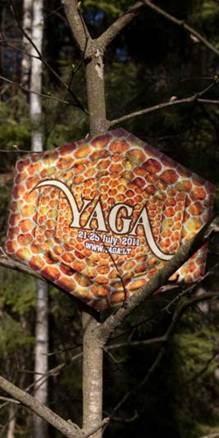
Outdoor musical gathering,
Vilnius outskirts, 21 – 25 July
The festival will feature more than 100 artists performing on three different sateages in the midst of a wonderful nature scenery!
An that’s only a fraction of what you will experience at the "Yaga Gathering"….
Leave civilization behind and immerse yourself in the real meaning of the word “Yaga“, which translated from Sanskrit means disposal of old and emergence of new.
Do you want to take a breath of fresh air, sink your everyday worries into a lake and refresh yourself with spring water? "Yaga" is offering that! Are you missing intoxicating sounds, dazzling light show and spectacular scenery? It will to be there! The festival will host five areas: three musical –trance, chill-out and eclectic and two educational – healing area for body & mind practices and workshop's area for those who want to learn a variety of crafts.
"Yaga" will also feature a wide range of electronic and live music - everything from Balkan beats, reggae, dub, ethno, IDM and ambient to techno and psy-trance. The festival will also host shamanic sauna, cinema, camping site, few chaishops, fine beer and homemade kvass stall, flea market and a kindergarten.
"Yaga" will show that a festival can be environmentally friendly and visitors can enjoy an alternative lifestyle and entertainment in harmony - "Yaga" connects travelers, yogis, greenpeace activists, artists, businessmen, party-animals and many other visible and invisible characters.
Exciting every time and charging with positive energy "Yaga" invites you to join and create the festival
How to get there?

Take a public bus from Vilnius bus station, direction Druskininkai.
Jump off at a bus stop named "Valkininku internato namai", 60 km south of Vilnius.
Read more at
http://www.yaga.lt/en
- Bookmark :
- Digg
- del.icio.us
- Stumbleupon
- Redit it
Sventoji Port which has been covered in sand may serve yachts in a couple of weeks
- Posted by - (0) Comment

If weather conditions are favourable, the Sventoji Port which has been covered in sand may again serve yachts in a couple of weeks, even though there were plans to postpone the channel dredging works till the year 2012, the Klaipeda daily Vakaru Ekspresas reports.
As the Klaipeda State Seaport Authority and the contractor of the works, the Latvian company BGS agreed, the contractor is to carry out the works in two weeks if weather conditions are favourable.
The shipping season usually lasts till 15 September, therefore the Klaipeda State Seaport Authority was considering whether it was worthy to deepen the Sventoji Port channel that was covered in sand in June, only 10 days after the official opening of the port, writes LETA/ELTA.
On Tuesday the Klaipeda State Seaport Authority announced that a special commission had examined factors why the Sventoji mouth's channel got covered in sand. Unusual meteorological conditions were named as one of the reasons. North and north-west winds would dominate and as the wind gust would reach 14 meters per seconds, waves of 1.5 meter high would form which in turn triggered a slip of part of accumulated ground.
- Bookmark :
- Digg
- del.icio.us
- Stumbleupon
- Redit it
- Posted by - (2) Comment
KLAIPĖDA FREE ECONOMIC ZONE:
A magnet for international companies
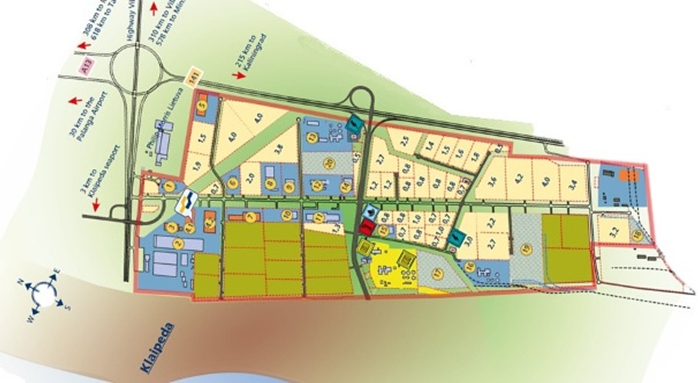
The Klaipėda Free Economic Zone (Klaipėda FEZ) was established in 1996 and opened officially in 2002. FEZ offers tax incentives to qualified investors that invest at least 1 million euros. In 2008, due to overcrowding the zone was expanded from 205 hectares (510 acres) to 412 hectares (1,020 acres) of developed land. As of March 2008, before expansion, FEZ had 22 investors: seven were operating, one just finished construction, six were under construction, and others in development stage. Web page: www.fez.lt E-Mail: info@fez.lt
The Klaipeda Free Economic Zone (FEZ) was the first and is still the only fully functioning free economic zone in Lithuania. The two companies that first started operations in the zone was the Japanese company Yazaki Wiring Technologies Lietuva, and the Danish company A.Espersen A/S, which opened their fish processing factory here in January 2003. FEZ was established to provide favourable conditions for the development of business activities by offering a prepared industrial site with a ready physical and juridical infrastructure, support services and tax incentives.
The 412 hectares area is located in a strategic position, close to the port of Klaipėda and with well developed connections to rail and road. Palanga International Airport is located only 30 km from the FEZ.
The Klaipėda FEZ has signed agreements with 20 foreign and Lithuanian capital firms, of which 16 are already operating. Since its inception, there has been invested more than LTL 792 million and created more than 1.000 jobs in the zone. The Klaipeda FEZ is recognized an ‘importance for the state project’.
During the last eight years, approximately 400 million Euros has been invested here. Business is carried on here by 16 companies from countries of Western Europe, Asia, and Scandinavia. Another four companies have already commenced construction or design works.
The Klaipėda FEZ has been recognised as an economic project of state importance. Such status of the zone ensures a favourable attitude of authorities in solving any issues that may arise.
In 2010 the Klaipėda Free Economic Zone took part in a world ranking for free economic zones, organised by the “FDI Magazine” belonging to the “Financial Times” group of publications. Out of 700 world free economic zones, which participated, the Klaipėda FEZ took 20th place. In the category ‘facilities’ the zone took 5th place.
The first in Lithuania
Klaipeda Free Economic Zone is the first and leading free economic zone in Lithuania. The advantages of setting up a business here became especially apparent after Lithuania joined the European Union in 2004. Based within the security of doing business within the EU it provides an excellent point from which to explore the vast Eastern, Western, Scandinavian and Russian markets.
Tax incentives
Companies investing in the Klaipeda Free Economic Zone will have considerable benefits in terms of no or reduced profit tax, no tax on dividends for foreign investors and no real estate taxes. These tax incentives in the Klaipeda Free Economic Zone are regarded as state aid for regional development, and therefore comply with European Union regulations.
• 6 years’ exemption from corporate income tax following made investment and 50% discount for the following 10 years –for companies that have invested more than €1 million
• No real estate taxes
• No taxes on dividends paid on foreign investments
Management
The Klaipėda FEZ is managed by a separate company that provides clients with all the necessary services in order to make the process of setting up easier and faster. The company provides the following services:
– consultations on establishing and registering enterprises and setting up businesses in the zone;
– issues permits for activities in the zone;
– informs about EU structural support opportunities for the client’s investment projects
– helps the clients’ construction and other project vs. authorities
– provides temporary start-up offices and services
– provides contacts to reliable and verified service providers and contractors.
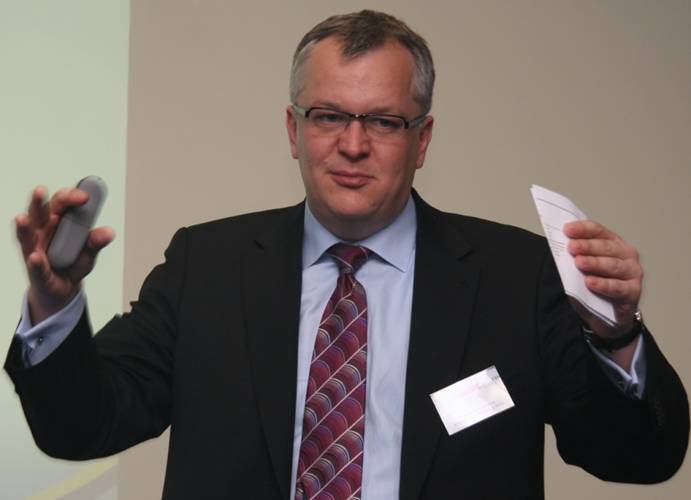
Director Eimantas Kiudulas of the Klaipeda Free Economic Zone (FEZ).
How to become a Klaipėda FEZ enterprise?
• Contact the FEZ management company by e-mail at marketing@fez.lt or by phone at +370 46 312163. Complete the investor’s questionnaire at www.fez.lt.
• Introduce your investment project, agree on the terms and conditions of doing business in the zone and sign an agreement with the Klaipėda FEZ Management Company.
• Obtain a permit for activity in the zone from the zone management company.
• Register a zone enterprise in the register of enterprises.
• Take on a sublease from the FEZ management company for a land plot or lease premises for doing business in the zone.
• Present to the tax administrator an auditor’s report, proving the amount of capital investment as prescribed by the law.
Current companies established in the zone
Klaipeda FEZ has signed agreements with 20 companies, of which 16 are operating. Their activities cover production of plastic pellets, logistics and storage, bio-diesel, electronics, appliances, architectural glass, steel constructions and a range of services.
Four new companies are now preparing their business activities in the zone:
Fortum, Heidelberg Cement, AB Ship and Nordetanolis.
Currently based in the Klaipeda FEZ are the following companies:
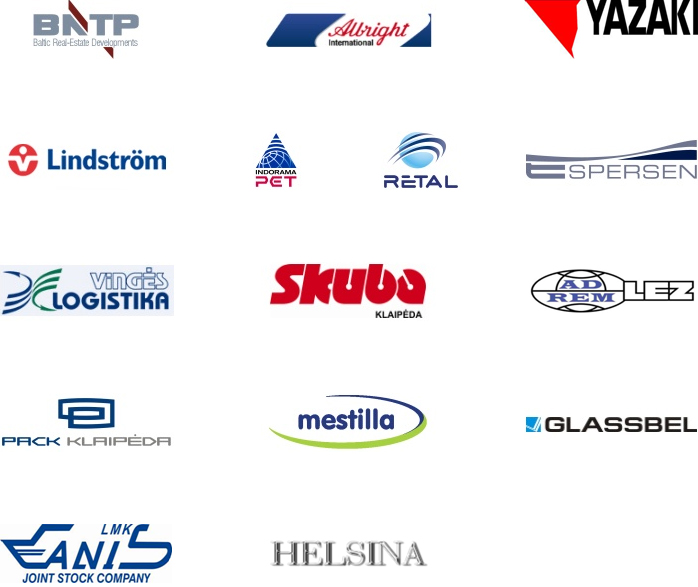
- Bookmark :
- Digg
- del.icio.us
- Stumbleupon
- Redit it
![]()
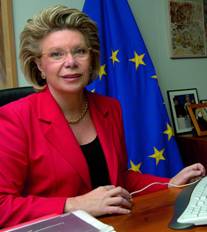
Viviane Reding says Austria had a legal basis to reject the European arrest warrant
Photo: http://top-people.starmedia.com
EUOBSERVER / BRUSSELS - Austria had no legal obligation to deliver ex-KGB general Mikhail Golovatov to Lithuania, since the crimes he is accused of occurred eleven years before before the European arrest warrant entered into force, EU justice commissioner Viviane Reding has said.
The release of Golovatov last Friday, less than 24 hours after his arrest, sparked an intense diplomatic row between Lithuania and Austria, with Vilnius accusing Vienna of violating EU and national law and lack of solidarity with another member state.
Lithuanian prosecutors had issued the European arrest warrant in order to put Golovatov on trial for allegedly having ordered, as a former KGB general, the storming of the Lithuanian state television in 1991. The events left 14 people dead and hundreds injured as the Baltic state was declaring its independence. Golovatov is now in Russia, a country which does not extradite its citizens to the EU.
"From a legal point of view, Austria didn't have the obligation to implement the European arrest warrant," Reding told a press conference in Sopot, Poland, after an informal meeting of justice ministers where the Lithuanian-Austrian row came up.
The commissioner explained that under EU law, a country receiving an EU arrest warrant from another member state is obliged to follow it only if the crimes were committed after 2002.
Read more at:
http://euobserver.com/9/32642
- Bookmark :
- Digg
- del.icio.us
- Stumbleupon
- Redit it
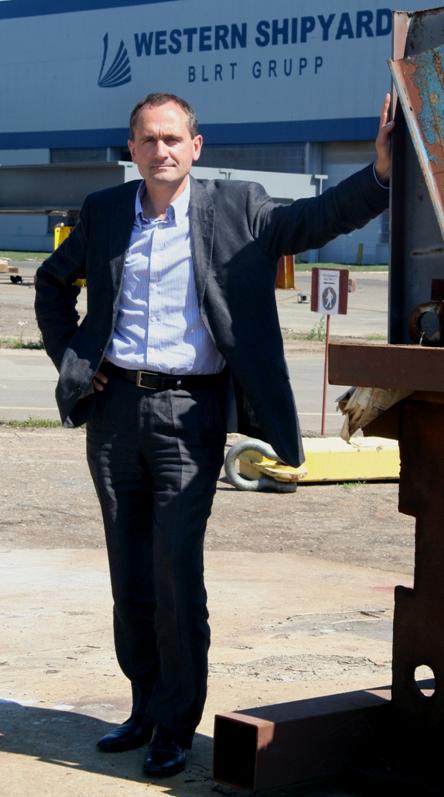
Western Shipyard’s General Director Arnoldas Šileika started to work as foreman
in the yard 22 years ago, when it still was under Soviet rule. He has been head of this
huge company since 2001, leading the transformation from Soviet times and thinking.
Western Shipyard’s General Director Arnoldas Šileika interviewed by Aage Myhre
aage.myhre@VilNews.com
I've been here before. I recall this as I pass through the guard building and the strict access control point that is the entrance to this huge shipyard furthest to the west in the Klaipeda port area. And well within the shipbuilding area, memories start flowing. I'm starting to remember details from my visit here 20 years ago, when the shipyard still was very 'semi-Soviet'.
I see the tremendously long, Soviet-like buildings, and walk along the one that is supposed to be the administrative headquarter. I finally get to the building’s end, closest to the sea, with a feeling of having gone back in time. But this feeling gradually fades as I get inside, climb the stairs to the 4th floor and walk into the corridors which are now colourful and nicely renovated, with pictures of new, modern ships and platforms on the walls. The pictures of Lenin and other communist symbols have miraculously disappeared since my last visit…
The secretaries in front of the general director's office still sit in the same reception room as by then. But now the dark, gloomy desktops are replaced with light, modern furniture, and the Soviet weightlifter-ladies have been replaced with beautiful and inviting young women, even speaking English very nicely…
And, believe it or not, the door to the general director's office is wide open! This time, there is no secretary humbly approaching the boss in his highness’ fortress behind armoured doors to ask if he graciously could accept to receive the visitor. No, now it’s the boss himself who comes smilingly out of the huge director-room, with an outstretched hand and a jovial 'welcome to our Western Shipyard! "
Hmm ... Times have obviously changed...

Western Shipyard started operations in 1969. The plan was that 9.000 people would work here.
Arnold Šileika pulls me into his office and offers a seat at the conference table in front of his desk. The tables are as large as they were 20 years ago, but now in modern, bright design. He offers me coffee, and I accept. But then I come to think that the last time I got coffee here I was served a strange sweet-sour mixture of sugar, water and coffee grounds that were almost impossible to mix into the water no matter how vehemently I used the teaspoon. Hairs rise on the back of my neck just by the thought.
But, of course, what is now being placed in front of me is obviously produced by an Italian coffee machine, and the scent is unmistakably genuine freshly brewed aromatic coffee.
My first question to the Director is related to the shipyard's history.
History – from Soviet colossus to European greatness
And Arnold Šileika is willingly telling me that the history of AB ”Vakarų laivų gamykla“ (VLG) – the Western Shipyard – started in 1966, when the construction started for a specialized ship repair yard very much directed towards Soviet’s huge fishing fleet. According to the project the yard would be the biggest and the most modern in Soviet’s northwestern region, also the biggest one in Klaipeda – with a 50 hectares territory, 3 km of quays, 100.000 square meters of production workshops and 9.000 employees.
The official opening of the Western Shipyard took place in 1969, and the first ship was put in a dock for repair that same summer 42 years ago.
The shipyard never became as big as forecasted, and in 1975 the company still had ‘only’ 2.600 employees repairing trawlers, refrigerators, plants, and fishing vessels.
After the downfall of the USSR, the huge fishing fleet became a burden for Lithuania. Ships were sold or written down to scrap. In 1993 the company restructured its activity and turned to repair of vessels from Western countries. Since then the company has been constantly strengthening its position in the markets, first of all in Western Europe.
AB "Vakarų laivų gamykla" was bought and privatized by the Estonian BLRT Grupp Concern in 2001. In 2003 the company was reorganized into the AB "Vakarų laivų gamykla" group with 23 companies within the activity fields of ship repair and modification, ship building, stevedoring and storage services, metal construction production, metal processing, hot galvanization, transport services, procurement, and more.
In 2010, Danish Odense Steel Shipyard sold its Baltijos Shiprepar yeard in Klaipeda to the BLRT Group, giving the group additional capacities, enlarging BLRT’s technical and logistical levels in developing shipbuilding in Lithuania and Estonia.
In 2007, Western Shipyard and the Norwegian company “Fiskerstrand Verft” established the joint company ”Fiskerstrand BLRT“ to deal with ship building, marketing, project management and more. The shipyard has since built several vessels for Fiskerstrand , together right now in the process of completing the construction of world's largest gas-powered ferry – for 600 passengers and 242 cars – for the Norwegian company Fjord1, one of the Norway's largest transport groups operating 63 car ferries, more than 500 busses and goods vehicles. This is one of the largest shipbuilding projects ever in Lithuania, with a total value of LTL 163.6 million (EUR 47,3 million).
Today - dramatic lack of workforce in Lithuania
Arnold Šileika has been working in the Western Shipyard since 1989, first as foreman, then as the company’s General Director for the last ten years. The company has now 2.000 employees, plus 1.000 more working on the territory for the shipyard on contract basis, totally 3.000 persons.
"You have, in other words, seen the whole transition from having been Soviet-ruled to becoming a Western company," I state.
And the director responds, still just as open and straight forward, that the biggest challenge has been to get workers to change their mentality from eastern to western ways of thinking.
"But now, today, the biggest challenge is actually to find people who want to work here," he says. "This despite the fact that we pay almost twice as high wages as what the labour market in Lithuania in general offers. We actually have had to start to bring in workers from Bulgaria and Romania to fulfill our obligations," he says.
Great importance for Klaipeda and Lithuania
The meeting with Arnold Šileika is nearing its end, and he invites me for a drive around the area that the shipyard disposes. The area is simply too big to cover on foot...
Aha, I think, now it’s probably soon time to again experience an authentic Soviet, black Volga with plush seats and curtains for the windows. The memories from 20 years ago have not let go yet, and I foresee a drive among rusting, sinking ship wrecks and a yard area full of old iron scrap, oil spills, creaking quay cranes and thousands of workers who are yelling at each other under the supervision of foremen who would make even the most hardened Soviet colonels to look bleak.
The director's car is a new Lexus, hybrid version ... The yard is dry, clean and tidy. The docked or moored vessels are all freshly painted and beautiful, almost exclusively from Western European countries. Nobody is yelling...
It finally begins to dawn on me that the Soviet times are over. That Lithuania has become a country with modern industry and service companies fully on a par with western countries.
The director's calm and professional voice reinforces this impression as he drives me around, explaining that my home country Norway is the most important partner for his Western Shipyard, but that he also supplies ships and other equipment to Denmark, Sweden, Finland, Germany, Netherlands, Italy and Russia. He says that the yard each year builds 10-12 vessels for these countries - ferries, tugboats, fishing and cargo vessels, plus boats and structures for offshore projects, and much more. He mentions especially a truly unique project that the yard completed two years ago; to build the jackup vessel Windlift 1 for an offshore windmill park. This was the largest project ever throughout the history of the Western Shipyard.
The shipyard also repairs different kinds of vessels, 100-120 every year.

The Jackup vessel Windlift I, completed in 2009, is the largest project ever throughout the history of Western Shipyard.
The General Director also tells me that Western Shipyard is the largest company in Klaipeda, also one of Lithuania's largest. He says that 90% of what the shipyard produces is exported, and that the company therefore is very important for the country’s trade balance and more. That also Klaipeda city enjoys very good benefits from the yard, that many families have their incomes from here, and that numerous shipyard partners in the west come here and leave important money in hotels, restaurants and shops.
“We are ready to accept many more contracts from Europe and other continents within vessel building or repairs. We can guarantee that we are competitive pricewise and that our quality is very high,” concludes General Director Arnold Šileika of Klaipeda’s Western Shipyard as he parks his Lexus just behind my car to see me off.
And I believe him. My initial expectation of finding a small Soviet spot here is gone. The director has convinced me that the company I now leave behind me is top modern, fully on par with shipyards in USA, Asia or Europe…

Western Shipyard’s General Director Arnold Šileika has reason to be proud of his company’s accomplishments.
- Bookmark :
- Digg
- del.icio.us
- Stumbleupon
- Redit it
Lithuania has recalled its ambassador to Vienna after Austrian police released a former KGB officer accused of involvement in a deadly crackdown on protesters in Vilnius during the struggle for independence in January 1991
- Posted by - (0) Comment
![]()

Lithuanian officials claim that 14 unarmed Lithuanians were murdered by Golovatov and his more than 1.000 KGB and army soldiers in Vilnius on the 13th of January 1991.
Mikhail Golovatov led a unit of Soviet special forces that stormed the main television tower in the Lithuanian capital, Vilnius, on 13th January 1991, when it was surrounded by demonstrators who were determined to see their country break free from five decades of Kremlin control. Fourteen people were killed in the attack, and about 1,000 others injured.
Police arrested Mr Golovatov at Vienna airport last Thursday on a European arrest warrant issued by Lithuania, but he was freed the following day and allowed to fly to Russia, which does not extradite its citizens.
Austrian officials claimed that Lithuania did not make a strong enough case for them to sanction the detention of Mr Golovatov and for his possible extradition to be considered.
Lithuanian authorities vehemently deny Austria’s version of events, insisting that they sent details of the case to Vienna in English and German, detailing how Mr Golovatov faced charges of war crimes and crimes against humanity that carried a potential life sentence.
President Dalia Grybauskaite recalled her ambassador from Vienna for consultations and said: “Austria’s haste in releasing the suspect in the January 13 case cannot be politically justified and compromises co-operation between the European states in law enforcement.”
Lithuania’s foreign minister, Audronius Azubalis, who discussed the issue with Austrian counterpart Michael Spindelegger, said his compatriots “and relatives of the victims ... are waiting for a convincing explanation from Austria as to why the decision was taken and why it was taken so hastily.”
“He told me that this is an old wound for Lithuania,” Mr Spindelegger said. “I understand this ... but even in the case of old wounds, there is no getting around the fact that there are principles in a process that have to be adhered to ... There was a request, we set a deadline to highlight that with concrete details. This deadline ran out without such concrete details.”
Lithuanian justice minister Remigijus Simasius said he would raise the issue at an EU meeting in Poland today. “It’s very likely that this case is related to a political decision, and Russia’s influence in making that political decision,” he said.
Vytautas Landsbergis, leader of Lithuania’s independence movement, said Austria had shown “subservience to Russia and a lack of a sense of honour.” This is not the first case in which Austria has been accused of bending to Russia’s will.
Vienna was strongly criticised for rejecting an appeal for police protection from Umar Israilov, who sought asylum in Austria after accusing his former boss, Kremlin-backed Chechen president Ramzan Kadyrov, of committing torture. Austrian police dismissed his request, and he was murdered shortly afterwards by Chechen hitmen. Investigators suggested that Kadyrov had ordered the killing.
- Bookmark :
- Digg
- del.icio.us
- Stumbleupon
- Redit it
VilNews e-magazine is published in Vilnius, Lithuania. Editor-in-Chief: Mr. Aage Myhre. Inquires to the editors: editor@VilNews.com.
Code of Ethics: See Section 2 – about VilNews. VilNews is not responsible for content on external links/web pages.
HOW TO ADVERTISE IN VILNEWS.
All content is copyrighted © 2011. UAB ‘VilNews’.

 Click on the buttons to open and read each of VilNews' 18 sub-sections
Click on the buttons to open and read each of VilNews' 18 sub-sections 

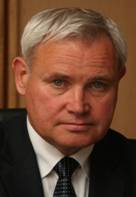





















.jpg)



